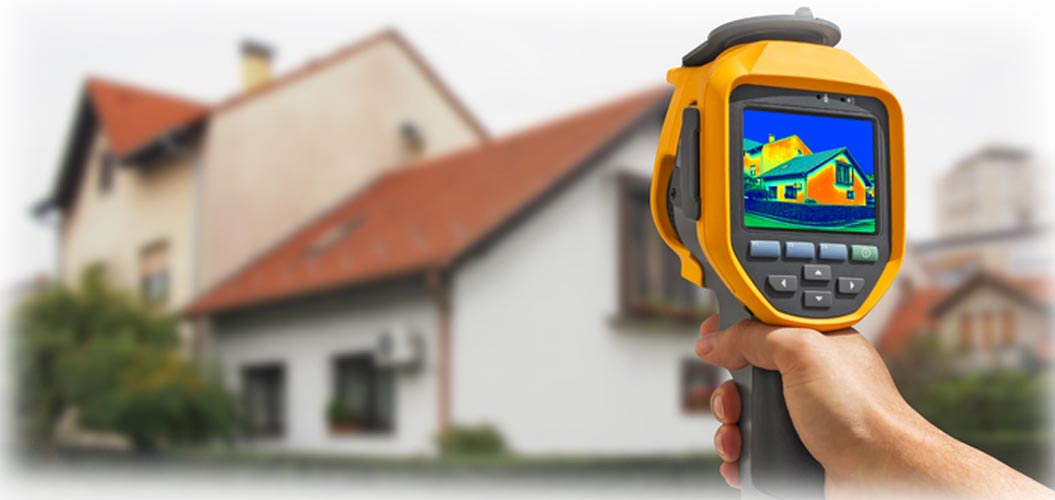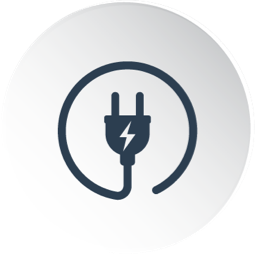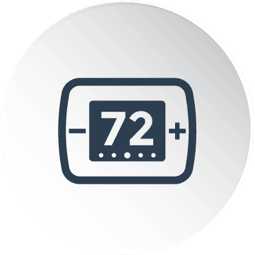
Home Energy Audits – Denver Energy Efficiency
REenergizeCO is a full-service, Denver energy efficiency auditing firm. Starting with a comprehensive energy audit, that brings a certified building performance analyst to your home for diagnostic testing that screens your home for the following:
- Under-performing or leaking windows and doors
- Air flow allocation to each room throughout the house
- Wall and attic insulation performance and depth
- Air sealing detection to ensure that the interior walls of the house are not a corridor for outside air to infiltrate the house
Once the house has been correctly diagnosed, the homeowner can choose REenergizeCO to perform the basic improvements to reduce the amount of energy lost, and increase the amount of comfort in the home.
Questions?
"*" indicates required fields
What is a Home Energy Audit?
Home energy audit is an assessment of how older residential houses perform compared to new house standards and codes. It is an analytical approach taking a year of utility data plus key behavior usage questions like how many occupants, what is the temperature setting on the thermostat and what type of heating and cooling systems are used. These data points are entered into a software and that software uncovers what can be done to improve comfort and utility savings in the most cost effective manors.
Video of a Home Energy Audit
Why would someone conduct an energy efficiency audit?
The benefit of an energy audit is knowledge. An energy audit utilizes state of the art equipment and a BPI certified diagnostic analyst to completely map the house and call out any area that is underperforming. The audit is a road map for energy efficiency and it will tell you what projects are immediate, what can be put off, and what to plan for in the long term. An energy audit is the single most important entity in the world of efficiency. Without it, you’re just guessing at what is wrong in the home.

What to expect when REenergizeCO visits your home
An audit starts with the homeowner pulling their utility usage from their utility providers. (find your energy history on Xcelenergy.com) We talk at the kitchen table for 20 minutes about how the house is used, how many occupants reside there, and what rooms are the problem areas and in what season. The main factors for energy audits are comfort and utility savings.
After the intro we set up the blower door, we do a thermal imaging scan, we get into the attic space, we get into the crawlspace, we look at the foundation, exterior walls, and HVAC heating and cooling equipment. Once all of those data points are collected, we measure the house so we can bid any of the work you’ll want to be done. We look at each room with the AC or furnace running to determine if the duct system is balanced. Lastly, we do a full combustion appliance zone(CAZ) safety test to ensure the house doesn’t have leaking gas appliances.
Client Reviews & Testimonials
With Just A Few Pieces of Equipment We Conduct Several Tests
Blower Door
Blower door: This is a fan that is placed on an exterior door, we close all exterior doors and windows and open all interior doors. We suck air through the building structure to highlight air infiltration. The usual suspects are can lights, door jambs, window seals, interior top plates of walls, mechanical chases, fireplaces chases, electrical lines, plumbing penetrations, junction boxes, and speakers.
Thermal Imaging
The thermal gun is used in conjunction with the blower door. If we highlight all of the air leaks, we can measure at what rate they are hurting the house by seeing how cold/hot certain spots are. This tool allows us to see behind drywall, and into exterior wall spaces. We’ll know if you have insulation and if it is performing or not with this tool.
Types of Energy Efficiency Tests
Combustion Appliance Zone Test
CAZ testing is simple. If we tighten up your house by air sealing and insulating it. We don’t want a leaking gas appliance inside of the newly tightened home. We do a test during the audit, then again after any work has been done.
Attic Inspection
Attic spaces have a big effect on the house. We get into the attic space and take digital pictures of the interior and exterior wall top plates to show you how effectively or ineffectively they are sealed, plumbing and electrical wires that enter the house through chases or holes and the style/depth of the insulation currently in the space. We also look at the eave and peak ventilation to make sure we can baffle or not block the intake air then we do a measurement to see if you have enough intake and exhaust ventilation.
REenergizeCO will help facilitate all paperwork, guaranteeing that all eligible rebates are received from the local utilities and Energy programs.
Energy Audit pricing can be found here
Frequently Asked Questions About Home Energy Audits
Is a Home Energy Audit Worth It?
A home energy audit is 100% worth it if you are concerned about your monthly electric bills, the energy efficiency of your home, or other issues. The cost of an energy audit tends to be minimal compared to the valuable insights such an assessment can provide.
Factors you should consider when deciding if a home energy audit is worth it include:
- High energy costs: Colorado is ranked as one of the states with the lowest electricity bills. Nonetheless, if you feel like you’re paying too much, it is worth finding out where you are losing money and getting recommendations to address the issue.
- Energy efficiency goals: An energy-efficient home has many advantages, from greater comfort inside the house to peace of mind that you are doing your part for the environment. Home energy audits pinpoint areas where you can make energy-saving improvements.
- The age and condition of your home: Older homes tend to be less energy-efficient. If you have an older house, a home energy audit is an important prerequisite for addressing issues caused by outdated construction and building practices. That said, even newer homes can benefit from an energy audit.
- Professional insights: Any homeowner can check the seal around their doors and windows and identify drafts. However, a professional audit conducted by a certified energy auditor can provide more accurate and comprehensive results.
- Resale value: The Colorado housing market is hot, with homes in Denver and other areas often selling above asking price. If you are thinking about selling your house, energy efficiency upgrades are a major draw. A home energy audit can provide a roadmap for these upgrades.
Consider your energy usage, goals, and budget before deciding on a home energy audit. However, most homeowners find that energy audits provide enormous value.
Read More: Are Home Energy Audits Worth It?
What Is the Best Time of Year for a Home Energy Audit?
There is really no wrong time of year to get a home energy audit. However, if energy auditing is on your to-do list, winter is the best time to do it.
Colorado can get very cold in the winter. The colder the temperature, the harder furnaces and heaters have to work to keep homes warm. Homes that are poorly insulated will have drafts and cold spots, and you’re likely to see your energy bills go up.
In other words, winter is the time of year when energy inefficiencies are most apparent. Uninsulated attics are a particular problem area in the winter; up to 25% of heated air can be lost to leaks. Hot air rises, so heat loss through the attic is particularly detectable during the winter.
Read More: When to Replace Attic Insulation
A timely energy audit can identify the full scope of issues your home may be facing. This includes:
- Drafts and air leaks in your home
- Openings around windows and doors that let air escape
- Damaged or inadequate insulation
- Inefficient appliances
- Underperforming heating systems
Getting a home energy audit in the winter also gives you plenty of time to make upgrades before summer. Summer is another time of year when energy needs (and, as a result, energy costs) go up, so improving your home’s energy efficiency before the hottest days arrive can pay off handsomely.
Does Xcel Do Energy Audits?
Xcel Energy strongly encourages residential and commercial customers to get home energy audits. Customers in the Denver metro and other areas of Colorado are eligible for a home energy audit with rebate every 2 years. However, Xcel does not perform the audits themselves.
Instead, customers must book an appointment with a registered contractor. Click this link and select the “Home Energy Audits,” and you will see a list of contractors participating in Xcel’s home energy audit program. Participating contractors are required to meet certain professional standards to satisfy the conditions of the rebate offered by Xcel Energy.
You will notice that REenergizeCO is listed first. That’s because we’re the top rebate-producing contractor providing home energy audit services in the Denver area!
Read More: What Is an Xcel Energy Audit?
Are Energy Audits Expensive?
The initial price of a home energy audit by REenergizeCO is $335. However, if you are an Xcel Energy customer, the majority of this cost (60%) will be paid by Xcel thanks to the generous rebate provided to customers who use a participating contractor. REenergizeCO will help you with all the paperwork to claim the rebate.
If your electricity is provided by a company other than Xcel Energy, you may still qualify for a rebate or discount that reduces the cost of a home energy audit. For example, customers of Fort Collins Utilities can sign up for a home energy assessment through the Epic Homes program and obtain a rebate once the assessment is complete.
A few hundred dollars might seem like a lot to pay upfront. However, between the rebates and the quality of the information you receive concerning your home’s energy efficiency, it is our view that the cost of home energy auditing is ultimately outweighed by the benefits.
Read More: How a Home Energy Audit Can Save You Money
How Do I Prepare for an Energy Audit?
Preparing for a home energy audit is a relatively easy process. The steps we recommend include:
- Organize your energy bills. We ask that you collect a year’s worth of electric bills so our energy auditors can identify patterns and trends in your energy usage.
- Have maintenance records handy. If you have maintenance records for your heating, cooling, and ventilation systems, provide them to the auditor. These records can help us assess the condition and efficiency of the equipment.
- List your concerns and priorities. If you are concerned about indoor air quality, the comfort of certain rooms, or how much you spend on electricity, be sure to tell us. We will prioritize these items in our assessment.
- Compile information about your home. A summary of your home’s specifications will provide the energy auditor with important background information. This includes the square footage, number of bedrooms, type of heating and cooling systems, insulation type, and the age of major appliances and systems.
- Take stock of your energy use. Be ready to discuss how you use the lights and appliances and how often one or more people are home.
- Make everything accessible. All areas of the home should be easy for the energy auditor to access. This includes the attic, basement, crawl spaces, etc.
- Secure pets. Dogs, cats, and other pets should be kept out of the way during the audit.
- Keep doors and windows closed. The blower door test only works if all windows and doors are shut.
- Remove ash from the fireplace. Air currents created by the blower door can spread the ash from a fireplace across the room. If you have a fireplace, be sure to remove the ashes to avoid a mess.
- Open all vents. Supply and return vents should all be open to maximize airflow. Opening the vents will allow the home energy auditor to identify leaky ductwork and fully track the movement of air inside (and out of) the house.
You should expect the energy audit to take about 2 hours. Be sure to allow enough time and don’t schedule the audit so it conflicts with your usual routine (such as picking up the kids from school, going to work, etc.).
Read More: How Do You Prepare for an Energy Audit?
What Is the Tax Credit for an Energy Audit?
The Energy Efficient Home Improvement Credit was created as part of the Inflation Reduction Act. Starting January 1, 2023, homeowners can claim a tax credit of up to $150 when they get a home energy audit.
Certain conditions must be met for you to qualify for the Energy Efficient Home Improvement Credit when you get a home energy audit. Namely, the audit must include a report that “identifies the most significant and cost-effective energy efficiency improvements with respect to the home.”
Beginning in 2024, a home energy audit will only qualify for the tax credit if it is performed by a professional who has achieved certification from a program recognized by the Department of Energy. The report must include the name of the auditor, their employer identification number, a declaration that they are certified by a qualified certification program, and the name of the program.










